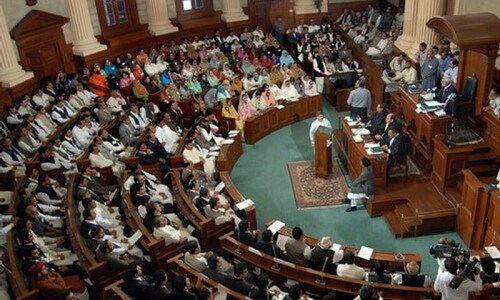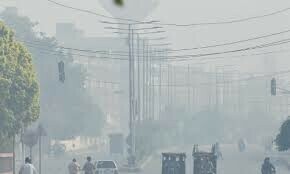LAHORE: Punjab plans to modestly increase its development spending, cut taxes and implement an economic stimulus to facilitate small businesses in its budget for the fiscal year 2020/2021 to mitigate the crippling impact of the Covid-19 pandemic and create jobs in the province.
Officials told Dawn on Sunday that the government plans to target public development investment of Rs337bn, up by nearly 9.5pc from the original estimates for the present year, in spite of a significant reduction in its share from the federal divisible tax pool and provincial tax and non-tax revenues because of the economic recession spawned by the Covid-19 outbreak.
The provincial share from the divisible pool is projected to be Rs1,439bn, or over 10pc less than the original estimates of Rs1,611bn for the current financial year. Similarly, the provincial government has cut its provincial tax and non-tax revenue target by almost a fifth to Rs318bn.
The province is likely to book a substantial ‘deficit’ at the end of the present financial year because of reduced federal transfers and provincial receipts owing to the partial lockdown enforced towards the end of March to halt spread of the Covid-19 infection.
“The economic situation remains fluid in Punjab as well as in the rest of Pakistan because of increasing coronavirus infections and the businesses are feared to continue to reel under the impact of the outbreak for a few months to come. Therefore, we have decided to cut provincial taxes on small businesses in addition to stimulate their growth through a Rs30bn development stimulus to save jobs,” a senior provincial government official told this reporter.
The rolling budget framework will allow the government to continuously monitor the impact of the virus outbreak on the provincial economy on a monthly basis and change its strategies and policies accordingly to protect businesses and jobs.
Officials said the government had rejected a proposal to enhance agriculture tax in view of the twin outbreak of Covid-19 and locust in different districts of the province. “It is an inclusive budget, which is prepared after substantial input from different stakeholders. We had invited public to share their aspirations for the next year’s budget and we were surprised to see the overwhelming response to it,” said the official who refused to give his name.
In line with the federal decision, the provincial government has decided to freeze the salaries of its employees in view of the poor financial situation and economic uncertainties caused by the Covid-19 outbreak. “In fact, our pension reforms will save the provincial exchequer Rs18bn on account of its pension bill during the next financial year,” the official said.
He said the government had decided to fully release in advance the non-development funds to the health and other departments in the front line of the fight against the virus outbreak on a monthly basis.
Further, he said, the government had decided to book all of its projected share from the federal divisible pool but kept the estimates of its expenditure much lower than the expected income for the full year because of the uncertainties caused by the health crisis.
A provincial planning and development board official said the next year’s development funds had been allocated in line with the RISE Punjab strategy developed to cope with the negative economic impacts of the health crisis on businesses, jobs and incomes. He said in addition to the core development programme, the government had decided to initiate around 13 projects in the Public Private Partnership (PPP) mode.
“We have allocated Rs25bn for acquisition of PPP projects next year,” he added. However, he said, the budget document will not indicate the exact size of investment in the PPP mode. The government had in the current year’s budget announced PPP schemes worth Rs42bn. However, none of those could be initiated.
Published in Dawn, June 15th, 2020














































